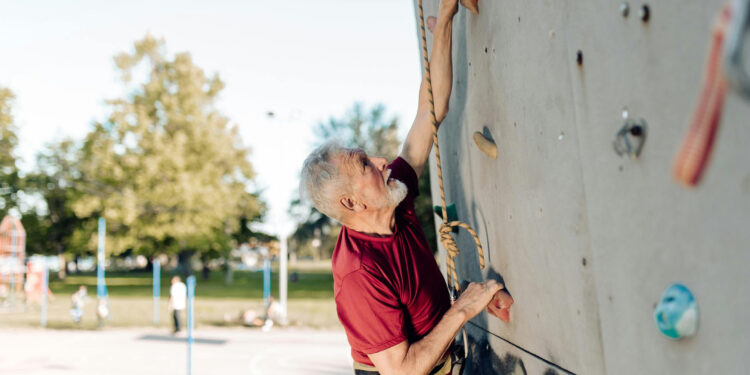For most of us, rock climbing might seem like an adrenaline-packed adventure that pushes us out of our comfort zones. But for a group of climbers with Parkinson’s disease, scaling walls is where they feel most in control, confident, and alive.
Take Jon Lessin, for example. Diagnosed with Parkinson’s in 2003, Jon turns to rock climbing for more than just exercise—it’s a personal victory. “I get to the top and I feel like I’ve conquered something,” Jon shared with CBS News. “The wall can’t beat me. I can beat the wall.”
Jon is part of a growing community supported by Up ENDing Parkinson’s, a nonprofit offering guided rock climbing lessons for people living with the condition. Founded by Molly Cupka, the program helps participants tackle far more than just the wall. “Climbing builds balance, mobility, strength, cardio, and even cognitive skills,” Molly explains. “It’s about figuring out where to move next and how to get your body there.”
Beyond the physical benefits, the emotional boost is life-changing. Parkinson’s can make people feel small—restricted to slow, small movements, often hunched over. But climbing? It flips the narrative. “Climbing makes you feel like you can accomplish the world,” Jon says.
It’s not just a workout; it’s a rebellion against a disease that often tries to shrink one’s sense of self. And every time these climbers reach the top, they’re proving that Parkinson’s doesn’t define what they can achieve.
Want to know more about this incredible initiative? Check out Up ENDing Parkinson’s and how they’re redefining possibilities here. Who knows, you might just find inspiration to tackle your own metaphorical walls. 🧗♀️





















Your article helped me a lot, is there any more related content? Thanks!
Thanks for sharing. I read many of your blog posts, cool, your blog is very good.